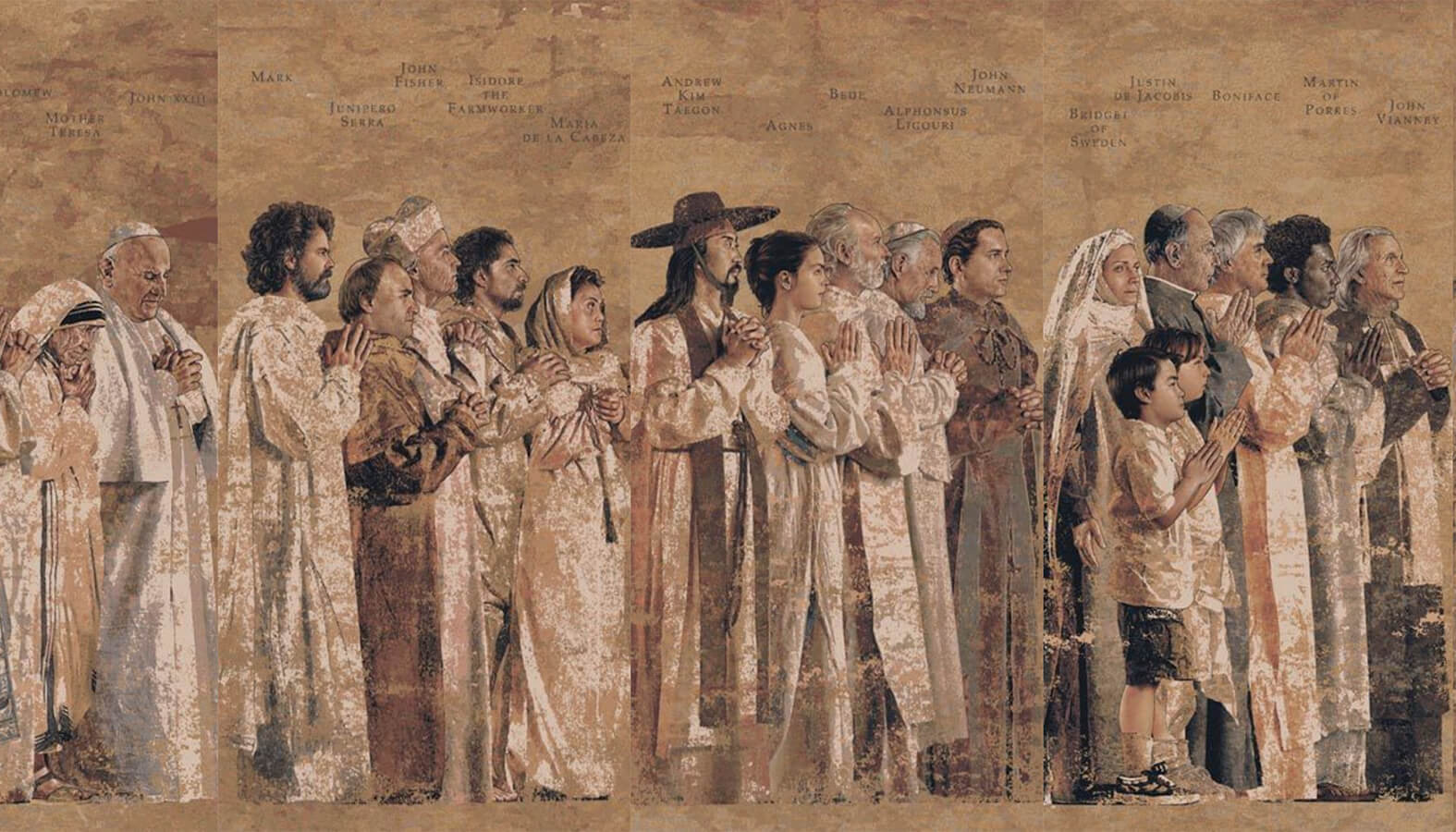In September, we celebrated two important events in the life of the family of God here in the Archdiocese of Los Angeles.
We marked the 20th anniversary of the dedication of the Cathedral of Our Lady of the Angels. We also offered the closing Mass for the jubilee year commemorating the 250th anniversary of Los Angeles’ first church, Mission San Gabriel Arcángel, which was founded by St. Junípero Serra.
The story of the Catholic faith in Los Angeles can be told in these two churches.
It is the story of mission, the great task that Jesus Christ entrusted to his apostles before he ascended into heaven, the ongoing drama of salvation that he is still working out in the history of the nations and peoples of the earth:
“Go, therefore, and make disciples of all nations, baptizing them in the name of the Father, and of the Son, and of the Holy Spirit, teaching them to observe all that I have commanded you.”
St. Junípero and the Franciscan missionaries answered that call when they set out from Spain to Mexico, and when they later came up to evangelize California.
I think about these things when I celebrate Mass in the cathedral. As I look out upon the faithful in the sanctuary, they are “framed” on both sides by tapestries that depict the communion of saints.
In one of these tapestries, the Gospel writer St. Mark stands next to St. Junípero. For me, it is a perfect symbol for how the mission of Jesus continues in the mission to California and the New World.
This is the reality of the Church and the reality of our lives. Each of us who is baptized is called to answer Jesus’ call, and to play our part in his great mission of salvation, his beautiful plan of love for the nations and for every soul.
If we could lift the veil of creation, move from the things we can see to the things that are unseen, we would realize that we are alive always in God’s presence, that we walk now in the company of angels and saints, our ancestors and loved ones, both in heaven and on earth.
The Church is the communion of saints. This is the definition that we find in the Catechism.
Saints was the original name that Christians used to describe themselves. It simply means holy ones. Not ones who have achieved holiness, but those who are striving for it, those who know that God’s will for our lives is that we become holy as he is holy.
From the earliest times, the eucharistic liturgies of the Christian East have included the prayer: “Sancta sanctis!” It’s a Latin expression that means, “God’s holy things for God’s holy people.”
The idea is that in the Eucharist, the holy ones, the “sancti,” received the “sancta,” the holy gifts of the Lord’s body and blood. Sharing in that one bread, we are drawn together in a mysterious way with one another to form one body in Christ.
Our communion in “holy things” makes us a “holy people.” That means that in the Church, we are never alone. We walk with the saints and we share in their mission. The Letter to the Hebrews tells us, “We are surrounded by so great a cloud of witnesses.”
And there is power in this union.
The communion of saints is a mysterious solidarity of charity. Joined in Jesus, what we offer in charity for our brothers and sisters — our prayers, mortifications, and sacrifices — in a mysterious way, can help them.
Belonging to the communion of saints means also that we can count on the intercession of the saints in heaven. St. Augustine said wonderfully, “Why can the dead do such great things?”
It is a beautiful mystery. In the Bible’s last book, we are given a glimpse of what their intercession looks like. There is that great scene of golden bowls, filled with “the prayers of the holy ones,” being offered before God’s heavenly throne.
St. Thérèse of Lisieux promised on her deathbed, “I want to spend my heaven in doing good on earth.”
So we can turn to the saints, ask them for help in our weakness, ask them to do great things for us.
We can pray to our heavenly Father, as we do in the third Eucharistic Prayer: “with all the saints, on whose constant intercession in Your presence we rely for unfailing help.”
Pray for me and I will pray for you.
And as we enter the month of November, the month where we remember the dead, let us ask our blessed mother Mary, Queen of All Saints, to help us to have greater devotion to the saints, and greater awareness that we belong to this great cloud of witnesses, this communion of saints.


